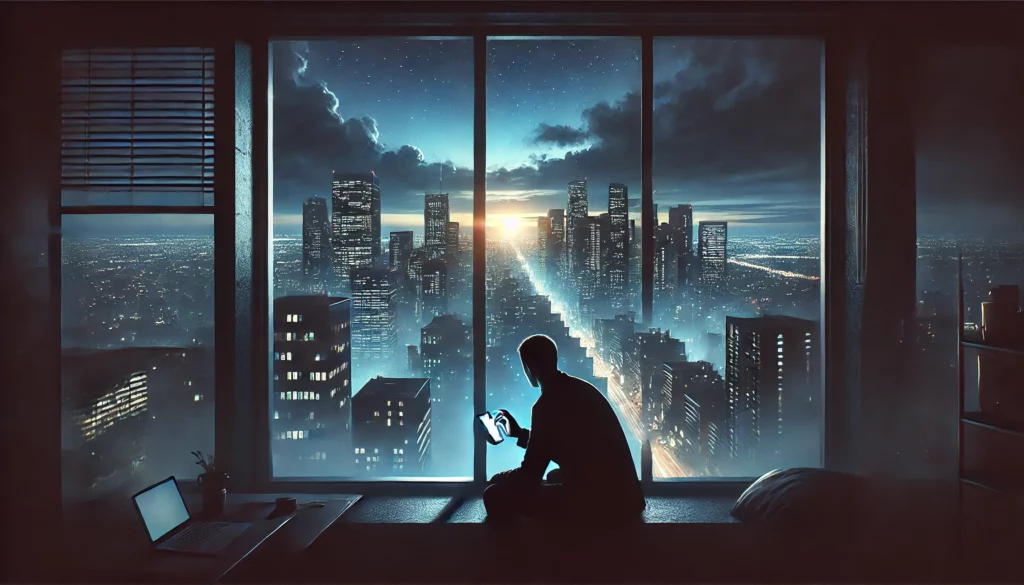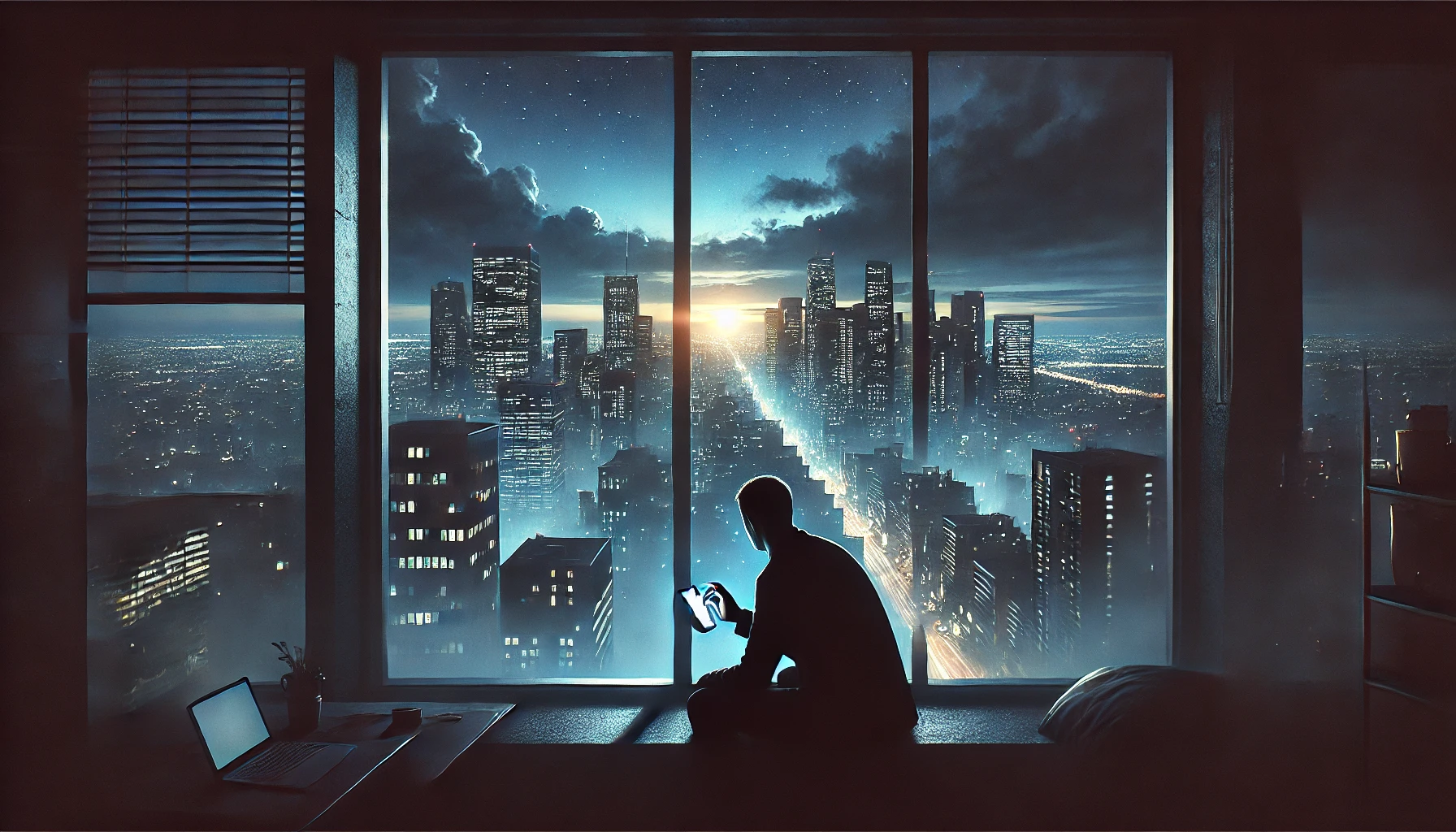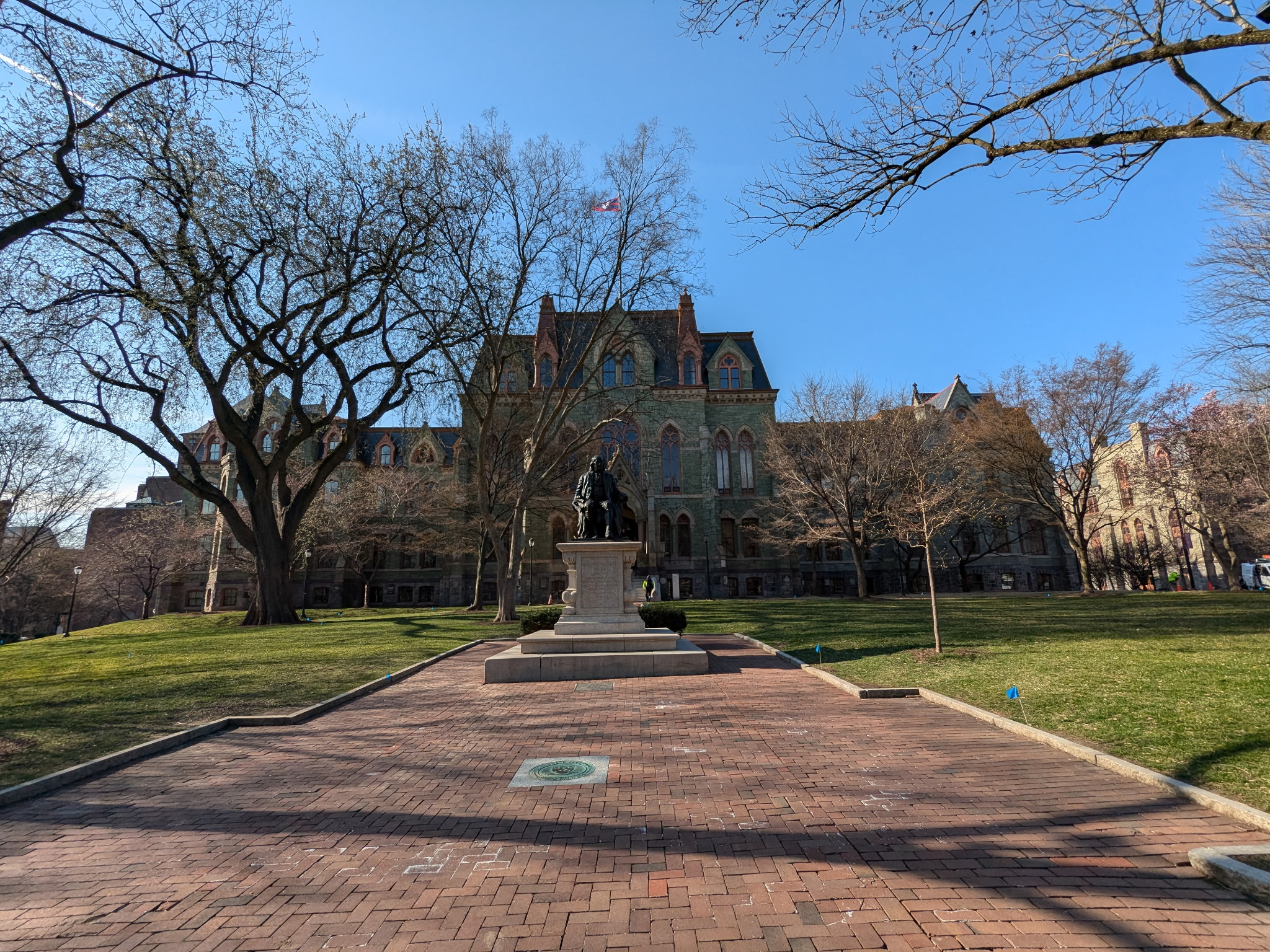
In a world of digital dopamine, we can find clarity in the silence.
Photo Credit: ChatGPT
By Anonymous Contributor
There’s something peculiar about 4 a.m.—not the 4 a.m. of productivity gurus and hustle culture, but raw, unfiltered 4 AM—when the world has momentarily forgotten to put on a show. My window overlooks the sleeping city of Philadelphia, its usual symphony of notifications, likes, and digital dopamine hits reduced to a murmur. In these rare pockets of real silence, something different starts—one with yourself.
We live in a time when the personal search for identity doesn’t feel quite like self-discovery but rather like algorithmic suggestion. Our phones hum with curated content; each notification, one after the other, is shaping and sculpting our very thoughts, our desires, and sometimes even our dreams. It tells us what we want before we realize we want it and who to be long before we work out who we are. The question should no longer be “Who am I?” but “Who am I when no one is watching, liking, or commenting?”
One evening, I realized something disturbing: my stream of consciousness had been transformed into a kind of curated feed. My mind wasn’t freewheeling; it had started running pre-laid tracks through viral headlines and trending topics and endless online debates. Even in moments of supposed reflection, I’d find myself scrolling through information consumed in my mind, not thinking. So I did something radical: I sat outside in the dark. No phone, no laptop, no carefully contrived playlist to curate the moment—just the honest company of my mind and the sounds, a city taking a breath between yesterday and tomorrow.
At first, this digital void feels frightening; the mind, so used to constant stimuli, rebels. It reaches for phantom notifications and craves the next hit of social validation. But with time, something shifts. In the absence of outside voices telling you who to be, your own voice comes forward: the quiet, oft-ignored whisper of your real self.
I caught myself thinking about the last time I’d made a decision that wasn’t bound by some form of digital consensus. When did I last read a book because it called to me, not because it was trending? When did I last form an opinion before checking what the internet thought? Those kinds of questions led me to a rather uncomfortable conclusion: I had outsourced my sense of identity to fit the rhythm of my feed, allowing algorithms to dictate not only what I was reading but, more essentially, who I was becoming.
I’m not missing the irony—writing about digital detox in a newspaper that will most likely be shared on social media—but perhaps that is the point. We cannot rid ourselves entirely of the digital world that is shaping us; it is too deeply woven into the fabric of modern existence. What we can do, though, is create intentional spaces of silence—moments where we exist without the constant compulsion to document, to share, and to perform our lives.
These 4 a.m. moments are the rare chance to distinguish between the identity we curate and the self we actually are. In the dark, there are no filters, no cleverly chosen angles, and no performative aspects of personality. There is only you, your thoughts, and the honest weight of your company.
In those moments of deep isolation came the biggest realizations—most likely, life’s biggest realizations come when one is truly alone with oneself. In quiet hours, I have made decisions that are an honest reflection of myself about what I want from life. The digital world did not influence them, nor did public opinion or the expectations set by society. The silences will not only tell you who you are but who you may become.
They are not intermissions from life online; they are themselves turning points. All the major changes in my own life have come about in such hours of solitude when the din subsides and clarity mounts. I suggest you do the same. Tarry with your thoughts until they become truly your own. Ask yourself the questions you’ve been too busy to consider: What do I want beyond what I am told to want? What would I do if nobody was looking? What dreams have I silenced in the noise of incessant connectivity?
It is not a matter of denying the digital world as a whole—that would neither be practical nor, of necessity, desirable. Rather, it is creating space for that kind of revelation and making room for deep, life-course-changing self-reflection. Social media and digital content are good for inspiration and connection but don’t weigh in on the wisdom rising up from the depths of stillness.
Perhaps the answer to finding an authentic sense of self in our hyper-connected world is not in some grand digital detox or dramatic social media exit, but in these small acts of rebellion: sitting in darkness at 4 a.m. and letting your mind wander without a post to memorialize the moment, existing without proving that existence to anyone else.
And with each breaking dawn, as the city stirs, one comes the realization these moments of digital silence are not a respite from content consumption but an active space of self-creation. Alone in the quiet dark, away from the endless scroll and algorithmic suggestions, one has a chance to author their identity—to seek a sense of self that pre-exists the social media validation of likes, shares, and retweets.
Next time your phone buzzes with an update, ask yourself this: Who are you in the spaces between updates? What thoughts pop up when you’re not being told what to think? Your true self may be waiting in the wings, speaking with a voice only heard when all screens go dark.
This article was written by an anonymous contributor.




